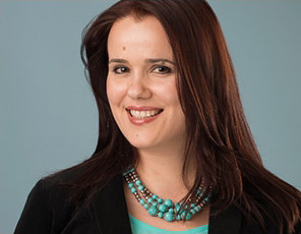DLS Language Training
DLS customizes our language training services to adapt to your unique learning needs with full-time, part-time, private, and small-group options. Our programs cover all language levels, from beginner to advanced, from acquisition to sustainment and enhancement. We use a proficiency-based approach to language training that emphasizes communication. Your progress is assessed based on Interagency Language Roundtable (ILR) proficiency levels.
When looking to study with DLS, this is what you can expect:
Choose the learning format that best suits your needs. DLS offers in-person, virtual, and hybrid learning options, which are tailored to students’ personal preferences and professional goals. All classes are offered one-on-one or in small groups. DLS instructors use a communicative teaching style and task-based teaching methods.
In-person learning involves training face-to-face with an instructor at one of DLS’ three locations in the DC metro area. Classrooms are equipped with whiteboards and computers. Onsite DLS staff are available for support.
Virtual learning happens online with an instructor. Virtual learning can happen in Synchronous or Asynchronous formats. Online DLS staff are available for support.
- Synchronous learning involves regularly scheduled classes with an instructor that happen via video call. Conveniently learn a language from your preferred location. Learn More.
- Asynchronous learning involves regular online tasks to complete independently or in groups at one’s convenience, with deadlines, instructor feedback, and a regularly scheduled video call for accountability. Learn More.
Hybrid learning includes both in-person and virtual classes, on a set schedule. This option capitalizes on the benefits of face-to-face language learning while incorporating the convenience of online learning. Onsite and online DLS staff are available for support.
DLS Cultural Training
DLS Language & Cultural Training Videos
Our extensive experience and results speak for themselves — in the last 10 years alone, we have provided over 1.8 million hours of language training, in 85 languages. 40% of our top language training clients have been with us for over 10 years, and we consistently receive excellent student feedback on our training programs. Our courses are for avocational purposes only and are not intended to prepare students for employment.
AFPAK Language and Cultural Training Program
Introduction
The Afghanistan-Pakistan (AFPAK) Hands language training program was a high priority of the Department of Defense (DOD). It is viewed by both the DOD and Congress as a powerful tool to help end the terrorist threat in South Asia.
Background
In 2009, the Defense Language Institute Foreign Language Center (DLIFLC) chose DLS to create and implement Dari, Pashto and Urdu language training for the military and civilians deploying to the Afghanistan-Pakistan region. The AFPAK program consists of three phases: a 16-week beginner pre-deployment training program, and the subsequent phases II, III and IV cultural and language immersion programs. These programs prepare students to interact directly with local officials, tribal leaders and members of the community. The objective was to develop the students’ language ability and cultural awareness enabling them to build rapport and trust with the locals, and ultimately leveraging those relationships to achieve peace and stability in the region.
Description of Challenges
Dari, Urdu and Pashto are hard languages for native English speakers to learn with Dari and Urdu ranked at a level 3 (out of 5), and Pashto ranked at a level 4, for difficulty to learn. Additionally, AFPAK included military and civilian volunteers, so it required tailored curriculum to fit each student’s previous language training, personal learning style and professional objectives.
Description of the Solution
DLS restructured our Dari, Urdu and Pashto curriculum by customizing syllabi to target each student’s learning objectives, developing supplemental activities and visual aids, designing weekly proficiency exams to track progress and personalizing instruction. Special cultural immersion events were held, such as Nowruz and Eid, to further cultural understanding. This unique approach allowed us to meet the needs of every AFPAK student, enabling them to build a brighter future for all.
The initial proficiency goal was to take students from an ILR level 0/0 to a 0+/0+ on the Oral Proficiency Interview (OPI) exam. After attending our program, so many students achieved a 1/1 or higher that AFPAK changed its proficiency goal, it is now a 1/1.
Since 2009, more than 1,000 students have completed the program, with 92.5 percent achieving or exceeding the proficiency goal. Furthermore, 65 students have achieved a 2/2, and 3 students have achieved a 2+/2+ after only 16 weeks. These scores are unprecedented.
Contact

Alma Sadikaj
Registrar and Client Relations Manager
Alma Sadikaj has several years of combined experience in international development, political affairs, program management, training and coaching, human resources and recruitment, logistics and operations, education, administration, marketing, sales, and client relations. Prior to joining us, Alma worked in both the non-profit and private sectors. Her passion is travel. During those journeys, she acquires insights about how cultures and languages are linked.

DLS instructors weave intercultural communication training into our language courses. They have extensive amounts of cultural experience and knowledge and present insightful information and guidance into the inner workings of their culture. DLS believes that true cultural competency is defined by interaction. With this perspective, DLS staff and instructors design training that is hands-on and experiential. They provide students with abundant examples and exercises to deepen their connection to the language and concepts they are learning.